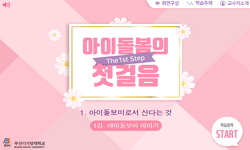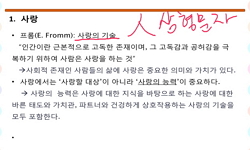본 연구의 목적은 인천지역 초등학생을 대상으로 푸드아트테라피의 효과성을 검증하기 위한 실증적 연구로서 푸드아트테라피가 초등학생의 자아존중감과 또래관계를 매개로 자아효능감에...
http://chineseinput.net/에서 pinyin(병음)방식으로 중국어를 변환할 수 있습니다.
변환된 중국어를 복사하여 사용하시면 됩니다.
- 中文 을 입력하시려면 zhongwen을 입력하시고 space를누르시면됩니다.
- 北京 을 입력하시려면 beijing을 입력하시고 space를 누르시면 됩니다.
푸드아트테라피가 인천지역 초등학생의 자아존중감과 또래관계를 매개로 자아효능감에 미치는 영향 = Effects of Food Art Therapy on Elementary School Students` in Incheon area Self-Efficacy through Self-Respect and Peer Relationship as Mediators
한글로보기https://www.riss.kr/link?id=T14043434
- 저자
-
발행사항
서울 : 한영신학대학교 대학원, 2016
-
학위논문사항
학위논문(박사) -- 한영신학대학교 대학원 , 사회복지학 , 2016. 2
-
발행연도
2016
-
작성언어
한국어
- 주제어
-
DDC
155.2 판사항(21)
-
발행국(도시)
서울
-
형태사항
108 p.: 삽도; 26cm
-
일반주기명
한영신학대학교 논문은 저작권에 의해 보호받습니다.
참고문헌: p.77-82 - 소장기관
-
0
상세조회 -
0
다운로드
부가정보
국문 초록 (Abstract)
본 연구의 목적은 인천지역 초등학생을 대상으로 푸드아트테라피의 효과성을 검증하기 위한 실증적 연구로서 푸드아트테라피가 초등학생의 자아존중감과 또래관계를 매개로 자아효능감에 미치는 영향을 분석하는데 있다.
현대사회는 물질적인 풍요를 누리고 있지만 가정의 교육적 기능이 약화됨에 따라 자녀에 대한 정서적 안정을 채우지 못하고 있는 실정이다. 그 이유는 부모의 불화, 건강문제, 정적인 생활습관, 바람직하지 못한 식습관 등으로 아동들의 정서문제, 건강문제, 학교생활부적응문제를 초래하게 되고 자아효능감이 저하되는 현상이 나타나고 있다. 이러한 현실에서 효과적인 인성교육이 요구되고 있는 시점에 초등학생을 중심으로 푸드아트테라피 프로그램을 실시한 경험을 토대로 본 연구를 시작하게 되었다.
푸드아트테라피 활동은 연구자가 직접 인천지역 8개 초등학교 학생 200여명을 대상으로 실시한 후, 참여집단과 비참여집단의 차이를 검증하였다. 연구대상은 인천지역 초등학생 406(참여: 206, 비참여: 200)명이다. 푸드아트테라피 활동이 자아효능감에 미치는 영향, 푸드아트테라피가 자아존중감과 또래관계에 미치는 영향을 살펴보기 위하여 회귀분석을 이용한 3단계의 검증방법을 실시하였다. 본 연구의 결과는 다음과 같다.
푸드아트테라피 활동이 초등하교 아동들의 자아효능감에 미치는 영향은 21.3%(R²=.213)로 밝혀졌다. 이는 자아효능감의 영향 관계에서 정의적, 신체적 요인, 사회적 요인은 푸드아트테라피에 참여한 초등학생들의 자아효능감에 전반적으로 영향을 미친 것으로 나타났다. 푸드아트테라피와 또래관계의 영향 관계에서는 정의적 요인, 신체적 요인, 사회적 요인이 참여한 초등학생들의 또래관계에 긍정적 영향을 미친 것으로 나타났다. 또한 푸드아트테라피와 자아존중감의 영향 관계에서 정의적 요인, 신체적 요인, 사회적 요인이 참여한 초등학생들의 자아존중감에 영향을 미친 것으로 나타났고, 푸드아트테라피와 자아효능감의 영향관계에서 정의적 요인과 사회적 요인이 또래관계와 자아존중감이 매개적으로 영향을 미치고 있는 것으로 나타났다.
본 연구는 푸드아트테라피가 초등학생의 자아존중감과 또래관계를 매개로 자아효능감에 미치는 영향을 실증적으로 검증하고자 출발하였다. 나아가 초등학생들의 자아존중감, 자아효능감 및 또래관계가 원만하지 못하여 나타나는 열등감, 학업문제, 집단따돌림 문제, 감수성부족 등의 문제를 해결하고 예방하는 아동복지서비스 프로그램의 일환으로 푸드아트 프로그램이 널리 활용되기를 기대한다.
다국어 초록 (Multilingual Abstract)
This study verifies the effectiveness of food art therapy by analyzing the effects of food art therapy on the self efficacy of elementary school children by way of self respect and peer relationships as mediators, targeting elementary school children ...
This study verifies the effectiveness of food art therapy by analyzing the effects of food art therapy on the self efficacy of elementary school children by way of self respect and peer relationships as mediators, targeting elementary school children in Incheon.
Modern society enjoys material abundance, but fails to meet the boosting of children's emotional stability due to weakened home education. This is because parental conflicts, health problems, inactive lifestyle habits, and inappropriate eating habits cause children's emotional problems, health problems, and school life maladjustment problems, eventually significantly lowering children's self efficacy. In this reality, as effective personality education is required, this study was conducted on the experience of implementing the food art program for elementary school children.
Food art therapy activities were conducted, targeting some 200 students in eight elementary schools in Incheon, and the participation group and non-participation group were compared to verify the difference. 406 subjects (206 participants and 200 non-participants) were sampled. To identify the effects of food therapy activities on self efficacy, self respect and peer relationships, the 3-step verification method, using the regression analysis, was employed. The findings of this study are described below.
The effects of food art therapy activities on subjects' self efficacy were found to be 21.3%(R²=.213). In self-efficacy influence relationships, affective, physical and social factors had overall effects on the self efficacy of participants. In the food art therapy-peer relationship influence relationship, affective, physical and social factors had positive effects on participants' peer relationships. Also, in the food art therapy-self respect influence relationship, affective, physical, and social factors had effects on participants' self respect, and in the food art therapy-self efficacy influence relationship, affective and social factors had effects on self efficacy by way of peer relationships and self respect as mediators.
This study sought to verify if the food art therapy would influence elementary school students' self efficacy by way of self respect and peer relationships as mediators. Furthermore, the food art therapy is expected to be widely used as part of child welfare service programs designed to resolve and prevent the inferiority, schoolwork, bullying problems, and lack of sensitivity problems due to inappropriate self respect, self efficacy and peer relationship, among elementary school children.
목차 (Table of Contents)
- Ⅰ. 서 론 1
- 1. 연구의 필요성 및 목적 1
- 2. 연구문제 6
- 3. 용어의 정의 6
- Ⅰ. 서 론 1
- 1. 연구의 필요성 및 목적 1
- 2. 연구문제 6
- 3. 용어의 정의 6
- Ⅱ. 이론적 배경 8
- 1. 푸드아트테라피(FAT: Food Art Therapy) 8
- 2. 자아존중감(Self-Esteem) 16
- 3. 또래관계(Peer Ration) 24
- 4. 자아효능감(Self-Efficacy) 29
- 5. 선행연구 34
- Ⅲ. 연구 방법 36
- 1. 연구모형 및 연구가설 36
- 2. 연구대상 39
- 3. 연구도구 및 측정도구 39
- 4. 연구절차 41
- 5. 자료분석 42
- Ⅳ. 연구 결과 43
- 1. 측정도구의 요인분석 43
- 2. 측정도구의 신뢰도 48
- 3. 영향관계 분석 49
- 4. 가설검증 70
- Ⅴ. 결론 73
- 1. 요약 및 논의 73
- 2. 제언 75
- 참고문헌 77
- Ⅰ. 국내문헌 77
- Ⅱ. 외국문헌 81
- <부록 1> 83
- <부록 2> 푸드아트테라피 프로그램 89
- ABSTRACT 106











